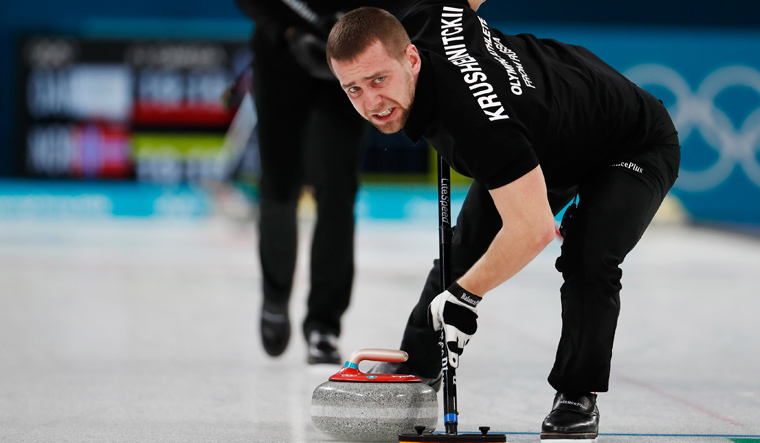Russian curlers Alexander Krushelnitsky and Anastasia Bryzgalova will hand back the Olympic medals they won in Pyeongchang, the Russian news agency TASS reported, citing a Russian curling Federation spokeswoman.
Krushelnitsky, who won bronze in Pyeongchang with his wife Bryzgalova in mixed doubles curling, tested positive for meldonium, a drug that can aid endurance.
TASS quoted Krushelnitsky saying he “formally broke the anti-doping rules” and a spokeswoman for the curling federation said the admission made it certain they would return the medals. Krushelnitsky said that it was “stupid to deny” failing two drugs tests.
The Court of Arbitration for Sport, which had scheduled a hearing for Thursday, cancelled it hours after reports said he had declined to appear.
“In the matter International Olympic Committee and World Curling Federation v Alexander Krushelnitsky, all parties have requested the Anti-doping Division of the Court of Arbitration for Sport to cancel the hearing today,” a statement said.
A decision in the case will be announced later and will be based on written submissions, CAS said.
“I am ready for the appropriate verdict, which in such cases is predictably identical,” Krushelnitsky said in a statement published by RIA Novosti.
“Due to this, having weighed all the pros and cons, I decided to pull out of the holding of the CAS hearing over my situation. I consider that under the current rules it is useless and pointless,” he said.
Krushelnitsky's A and B urine samples both showed the presence of the banned substance meldonium, the same drug which led to a 15-month ban for Russian tennis player Maria Sharapova.
His case has been controversial as he was one of 168 athletes who passed rigorous testing to compete as a neutral in Pyeongchang, where Russia are banned following the discovery of systemic doping.

